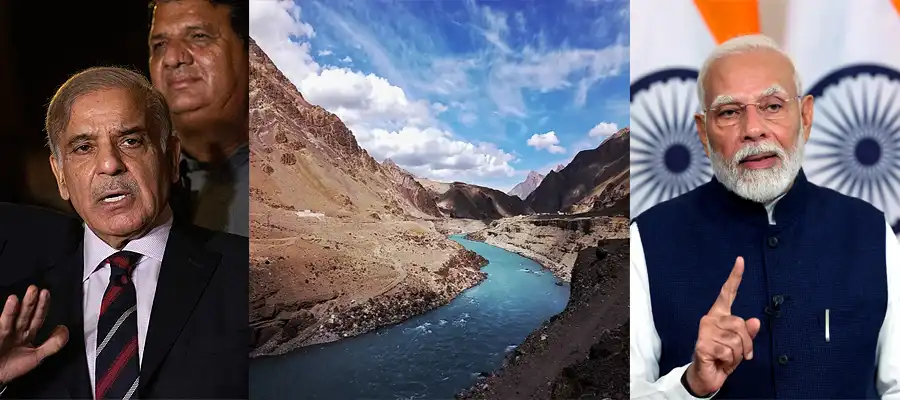In the aftermath of the cowardly Pahalgam Terror Attack, India's Ministry of External Affairs (MEA) in their press briefing on Wednesday night made the massive announcement on the Indus Water Treaty. Addressing the media after Prime Minister Narendra Modi chaired the Cabinet Committee on Security (CCS) meeting which lasted for over two hours, Foreign Secretary Vikram Misri announced several measures "recognising the seriousness" of the terrorist attack, including holding in abeyance with immediate effect the Indus Waters Treaty of 1960 until Pakistan "credibly and irrevocably abjures its support for cross-border terrorism".
Following this, turmoil erupted in the Pakistani media and social media, and they started to rant about New Delhi breaking international law. Pakistani Prime Minister Shehbaz Sharif reportedly called a high-level emergency meeting on Thursday to plan a line of action over India's diplomatic strike. In the meantime, people in India and around the world are wondering how the Indus Water Treaty can choke Pakistan internally and how it will benefit India's Punjab and Jammu and Kashmir. Below is all you need to know-
How can revocation of Indus Water Treaty benefit Punjab?
If the Indus Water Treaty between India and Pakistan is revoked, Punjab stands to gain significantly, especially in terms of water availability for irrigation and agriculture. As per reports, Punjab could receive up to 10,000 crore cubic feet of water annually if the treaty is annulled.
For those who are unaware, the Indian government reconsidered its stance on the Indus Water Treaty, which has been in effect since 1960 after the Uri Attack. Indus Water Treaty allocated 3 eastern rivers—Ravi, Beas, and Sutlej—to India, and the 3 western rivers—Indus, Jhelum, and Chenab—to Pakistan. However, India was restricted from fully utilizing the water of the western rivers despite them flowing through Indian territory.
Under the current provisions of the treaty, India is permitted limited use of the western rivers for irrigation, power generation, and transport. However, the treaty does not allow the construction of storage dams, significantly limiting water use potential in states like Punjab and Jammu & Kashmir.
Revoking the treaty could allow India to construct dams and fully utilize its share of the Indus waters. This can turn out to be a game-changer for Punjab, which has long faced water shortages for agriculture. As per reports, multiple projects aimed at harnessing water from the Ravi, Beas, and Sutlej rivers have been delayed due to treaty constraints and lack of cooperation from Pakistan.
The 1960 treaty was seen as a diplomatic move to maintain peace, but reports suggest that the geopolitical situation has since changed. Terminating the treaty would not only allow India to control more of its water resources but would also significantly boost irrigation and power generation capacity in Punjab.
